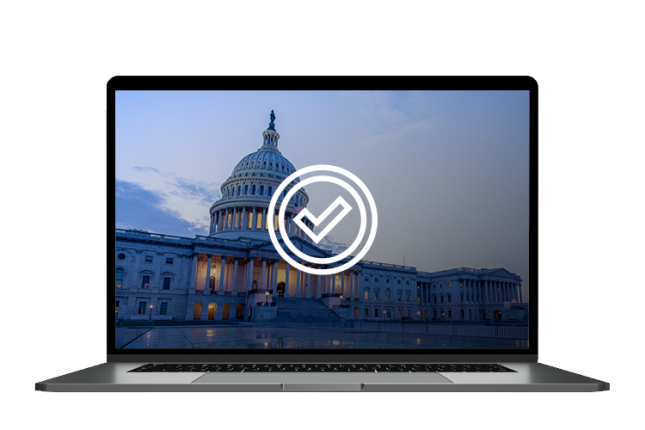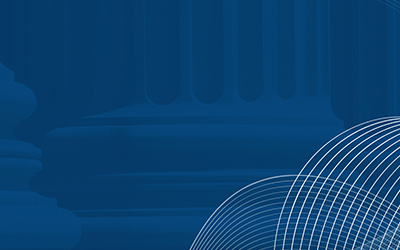Check out this month’s Compliance Matters newsletter, your one-stop shop for benefits compliance news! The employee benefits landscape is in a state of constant change. Get timely, accurate news regarding impactful legislative changes – and the resulting requirements, exposures and opportunities.
Employee Benefits Compliance Alerts
Prescription Drug Data Collection (RxDC) Reporting, Round Two
- The next round of prescription drug data collection (RxDC) reporting is due June 1, 2023.
- Employers may have more involvement than they did during the first round of reporting that was initially due December 27, 2022.
- No additional good faith relief or transition relief has been extended at this time.
- Employers should work with their carriers, third party administrators (TPAs), pharmacy benefits managers (PBMs), and brokers to ensure compliance.
End of Emergency Periods Sparks Health Plan Compliance Requirements
- On January 31, 2023, the President announced that the Public Health Emergency (PHE) and the National Emergency (NE) will both end on May 11, 2023.
- Under the PHE, group health plans and issuers must provide certain COVID-19 services at no cost-sharing.
- Under the NE, certain deadlines, claims, reviews and rights are extended through the outbreak period.
- Plan sponsors should take note of the end of the PHE and NE and consider the effect of the emergency end dates on their plans.
Department of Labor Issues 2023 Adjusted Penalty Amounts
- Federal regulations require the Department of Labor (DOL) to adjust its civil money penalties for inflation annually, by January 15.
- A variety of penalties are updated for enforcement in 2023.
Proposed Rules Create Individual Contraception Coverage Arrangement
- The Affordable Care Act (ACA) requires most health plans to cover contraceptive services at no cost-sharing.
- In 2018, final regulations allowed certain entities – those with religious or moral objections to contraception – a path to avoid the contraception requirement, and voluntarily offer an accommodation for plan participants to provide coverage through their issuer or third-party administrator (TPA).
- Three Federal Departments recently released proposed rules that eliminate the accommodation for entities and provide a new mechanism for individuals to obtain contraception at no cost to the individual or their plan sponsor.
- The proposed rules eliminate the moral exemption while preserving the religious exemption.

Additional Updates & Resources
DOL Provides Updated CHIP Model Notice
Twice yearly, the Department of Labor (DOL) releases a model notice, as required by The Children’s Health Insurance Program Reauthorization Act of 2009 (CHIPRA), to be distributed by employers. The Children’s Health Insurance Program (CHIP) provides federal funding to states to help deliver employer sponsored insurance coverage to low-income children instead of providing benefits through state Medicaid programs. Loss of CHIP coverage is a section 125 qualifying event that would allow dependents to enter an employer’s cafeteria plan midyear and may also trigger HIPAA special enrollment rights.
CHIPRA requires employers to notify employees about any premium assistance program available in the state where the employee resides. The DOL model notice contains contact information for the states where CHIP premium assistance is available, and is updated twice annually, usually in January and July, to reflect any changes. It was most recently updated January 31, 2023. The DOL does not require separate notices for each state where employees reside; one notice which lists all applicable states is sufficient, and notice must be provided annually. The DOL provides both English and Spanish versions.
The notice must be distributed to all employees who are eligible to participate in the health plan. It is often combined with open enrollment materials. According to the DOL instructions, the notice should “appear separately and in a manner which ensures that an employee who may be eligible for premium assistance could reasonably be expected to appreciate its significance.”
Employers should obtain a copy of the DOL model notice to distribute to all employees prior to the first day of their next plan year. Employers should also make sure that the notice is updated and distributed annually to employees.
Air Ambulance Reporting Is Not Due March 31, 2023
As part of the No Surprises Act (NSA) prohibition against balance billing, group health plans and insurers must submit information on air ambulance services to the Department of Health and Human Services (HHS) for two years. Proposed regulations stated that the first report will be due 90 days after the first full calendar year following release of the final rules by the agencies. The second round of reporting will be due 90 days following the end of the next calendar year. The proposed rules anticipated that the final rule would be released in 2021, making the first report due March 31, 2023. As of the date of this publication final rules have not been released. It is unclear at this time when the first report will be due, but if they are released at any point during 2023, the first report will be due March 31, 2025, and the second report will be due March 31, 2026.
IRS Updates Publications 502 & 503
The Internal Revenue Service (IRS) recently released updated versions of Publications 502 and 503 to be used for the 2022 tax year. These are the IRS publications that describe tax deductible medical and dental expenses (publication 502) and requirements to qualify for the dependent care tax credit (publication 503). The 2022 versions are similar to the 2021 versions with minor updates. The 2022 publication 502 is updated with revised dollar amounts to reflect inflation and removed the health coverage tax credit which is no longer available. Publication 503 is updated to remove temporary changes to the dependent care tax credit and dependent care assistance programs that are were only available due to the COVID-19 pandemic.
Visit our Compliance Insights page for alerts, webinars and featured articles based on your questions – and check out all our Employee Benefits Insights.
Visit our Compliance page and see how our
EPIC team can help your business thrive!


